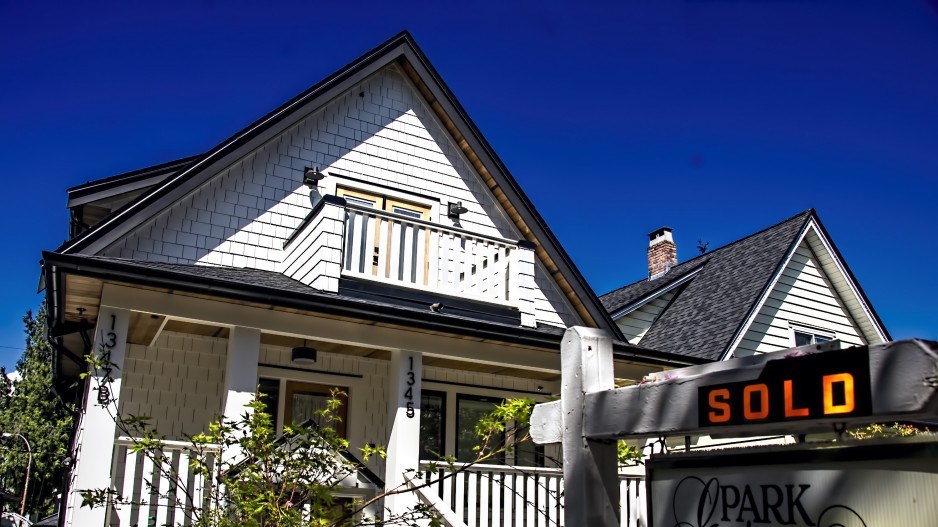B.C. has some of the lowest property tax rates in Canada – a feature of the local real estate market that can create a difficult environment for the average homebuyer, according to Zoocasa.
A June 12 report from the online real estate brokerage found the province is home to four out the five cities with the lowest property taxes in the country.
Vancouver, Victoria, Abbotsford and Kelowna all have property tax rates under 0.5 per cent. If a Vancouverite paid $1,188,000 for a home, they would have to pay $3,303 in property taxes annually.
In contrast, a homeowner in Toronto would pay $7,969 for a similarly priced home.
“Although at first glance it sounds like lower property taxes are really good and appealing to buyers, it can make conditions quite difficult for the average homebuyer,” said Zoocasa spokeswoman Patti Cosgarea. “Lower property taxes are appealing to investors. So this really brings a lot of competition to Vancouver and surrounding markets.”
Property taxes are the primary source of revenue for local governments throughout Canada and are used to create public services.
“In theory, the taxes paid by individual property owners should reflect the costs that are imposed on municipal service providers. However, in B.C. they're comparatively lower because home values have increased dramatically over the past few years. So property taxes have been lowered to compensate for that,” Cosgarea said.
Winnipeg currently has the highest property taxes in the country due in part to inflationary pressure. As prices lower in the city, property taxes are increased to compensate for this. The result is that Vancouver and Winnipeg are on “opposite ends of the spectrum,” according to Cosgarea.
Some experts have proposed that raising property taxes would work towards cooling B.C.’s increasing home prices, she said.
UBC researchers released a study in 2022 showing that Vancouver homes in the top five per cent of value had a median value of $3.7 million in 2018, but the owners only paid $15,800 in income taxes that year.
According to the study, this demonstrates a weak relationship between income tax and owned property value in Vancouver when compared to U.S. metropolitan areas. In addition, the study said this points to most luxury homes being bought with money “from sources other than earnings taxed in Canada.”
“A modest minimum income tax based on property value could raise billions of dollars annually in both the Vancouver and Toronto metropolitan areas,” the study said. “Also, a minimum tax would create an incentive for low taxpayers to leave, reducing revenue but enhancing supply available for local earners, consistent with existing policy goals.”
Tom Davidoff, an associate professor at UBC’s Sauder School of Business, said that this is a more progressive and efficient tax code that would do more for affordability by ensuring that British Columbians who own expensive homes pay their fair share.
Paul Kershaw, a professor at UBC’s School of Population and Public Health, authored a report in 2021 that took a similar but different route to shifting the way people think about taxation in B.C. The report proposes taxing the top 10 per cent of Canadians whose homes are assessed at more than $1 million annually.




